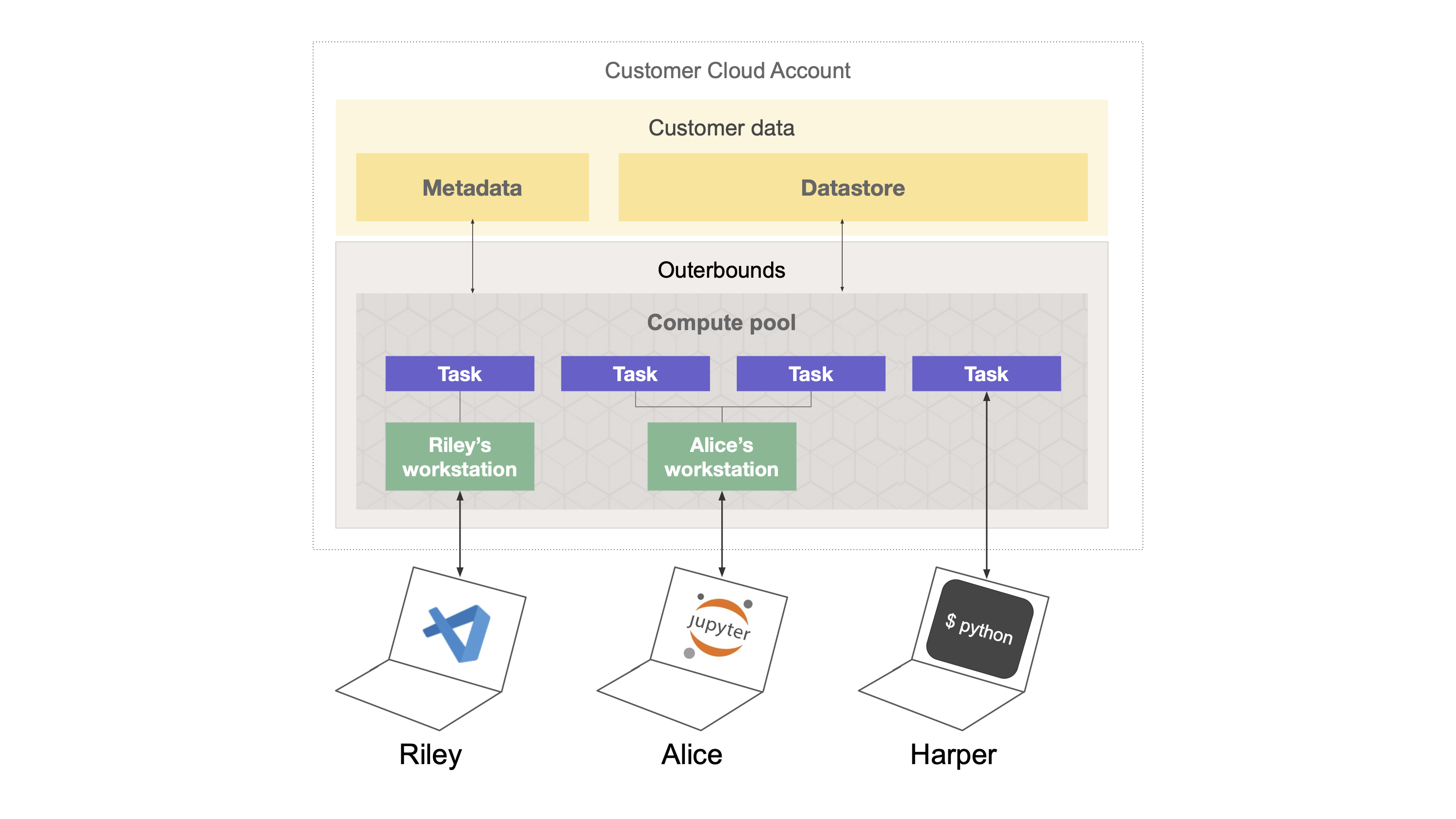Overview of cloud workstations
Outerbounds workstations allow you to explore data and develop and deploy flows and app in a consistent, secure, and fast cloud-based environment. The workstations support many styles of development. You can develop with
- A local Visual Studio Code IDE,
- Visual Studio Code via the web interface,
- Jupyter notebooks.
Note that workstations are optional: If you want, you can use Outerbounds with your existing development environment in the cloud or on your laptop.
Understanding Workstations: How They Work
This diagram shows how workstations fit in the overall architecture of Outerbounds:

Let's take a look at what's happening in the picture:
Workstations are personal - an admin can set up a personal workstation - "a laptop in the cloud" - for every user who wants to do cloud-based development, such as Riley and Alice in the picture. Some users, like Harper, may prefer to use their existing development environment, which is ok too. All workstation access is authenticated and authorized through your SSO provider, simplifying user management.
Workstations can be used through a few different interfaces - here, Riley chooses to use a local VSCode IDE to connect to a workstation, which is supported natively through an Outerbounds VSCode Extension. Alice prefers using a notebook via the web interface.
Workstations are securely hosted on your cloud account as a part of your Outerbounds deployment. Hence, all development takes place within your (cloud) premises, ensuring data privacy and security. A benefit of cloud workstations is that data stays inside your cloud account - users don't have to copy data to their laptops.
Workstations are provisioned through your compute pools - they can be backed by any cloud instances configured in your compute pools, including GPU instances, as shown in the Status view. Notably, multiple workstations can share one instance, and they can shut down automatically, minimizing your cloud costs.
Workstations are fully integrated with the platform - workstations are configured to use all platform features by default: Artifacts are stored automatically and experiments tracked through Runs, all governed by the platform-wide security settings.
Workstations smoothen the path from prototype to production - unlike laptops, which often use different architectures (such as OS X or Windows) from production environments (Linux), Linux-based workstations offer a consistent environment that closely mirrors production. Additionally, workstations seamlessly integrate with the dependency management tools provided by Outerbounds, in particular, allowing you to use any custom images to back workstations.
Workstations are a launchpad for scalable compute - developers are not constrained by the resources available on their workstations. You can effortlessly scale out compute, simply
run --with kubernetes. Consequently, there's no need to create oversized workstations, as you can easily access additional resources, such as GPUs, outside the workstation when needed.